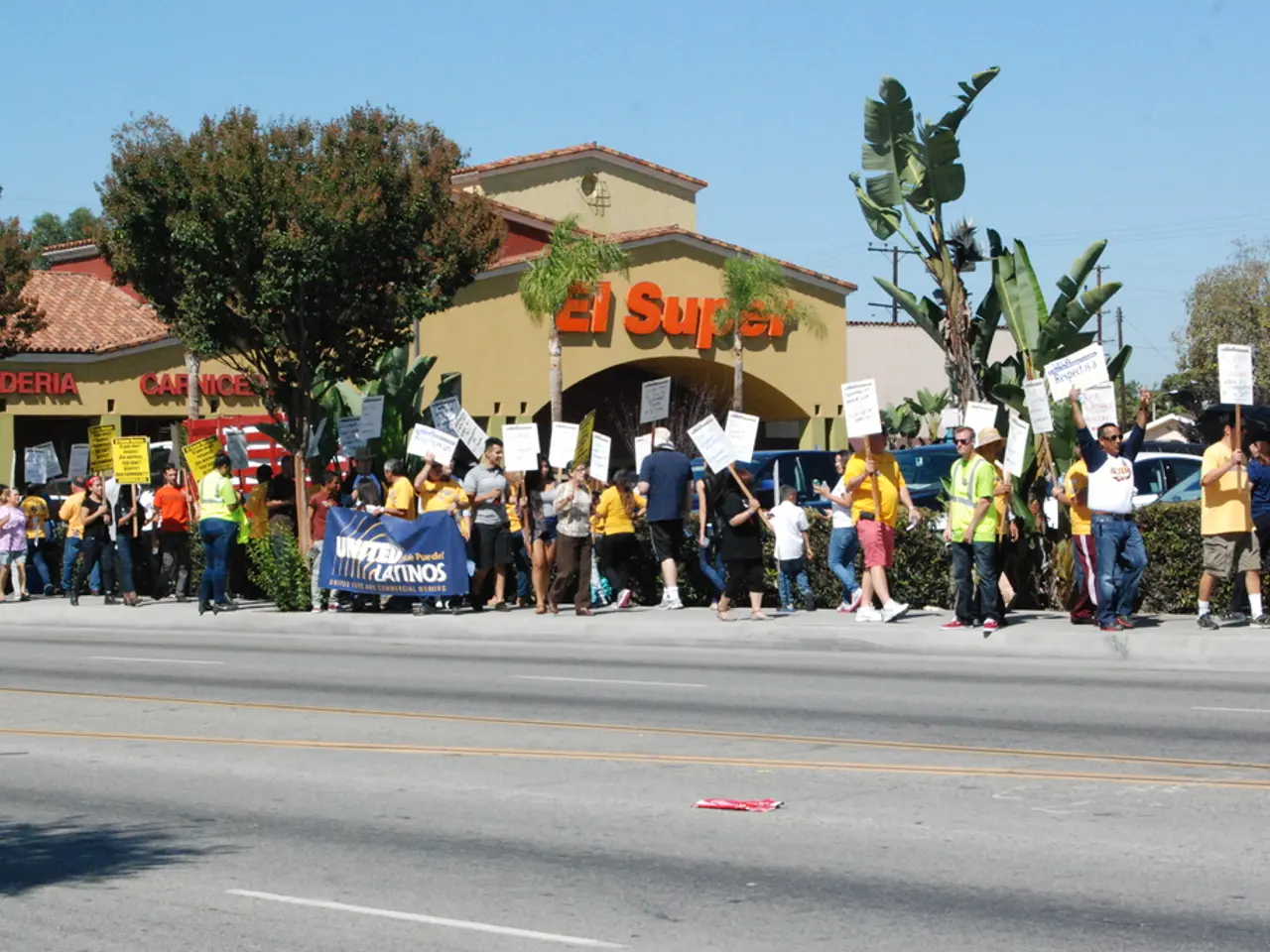Musk Declares Establishment of "America Party", Continuing Distancing from Trump
In a dramatic turn of events, U.S. President-elect Donald Trump and entrepreneur Elon Musk shared the stage at a rally held at Capital One Arena in Washington on January 19, 2017. This meeting, however, was not without its complex history of alliance, rivalry, and renewed cooperation between the two influential figures.
Initially, Musk was somewhat supportive of Trump. During Trump's first term, Musk served as a special government employee leading the DoGE initiative. Trump publicly endorsed Musk, including a notable moment when he arrived on the White House South Lawn in a red Tesla to support Musk's company, calling Musk's work "FANTASTIC."
However, the feud between the two began to surface in 2025 when Musk publicly condemned Trump's tax and spending bill, often referred to as the "One Big Beautiful Bill." Musk criticized the bill for massively increasing the budget deficit to $2.5 trillion and burdening American citizens with unsustainable debt. Musk urged Congress to draft a new spending bill that would not grow the deficit so drastically and even called on people to "Kill the bill" by contacting their representatives to stop it.
The dispute escalated when Trump threatened to cancel Musk's government subsidies and contracts, to which Musk responded by claiming Trump would not have won the presidency without him. Musk also shared posts calling for Trump's impeachment, intensifying the conflict. Trump blamed Musk’s social media attacks on his decision to end electric vehicle tax credits favoring Tesla.
Despite the acrimony, there were moments of tentative reconciliation. During protests in Los Angeles, Musk deleted his calls for Trump's impeachment and praised certain actions of the Trump administration. Trump later publicly said he had a "good relationship" with Musk and wished him well. Following a phone call between the two, Musk expressed regret for some of his harsher posts about Trump, stating he had "went too far," and Trump showed appreciation for the apology.
However, the feud reignited later in June 2025 when Musk renewed criticism of Trump's spending bill, stating it would "destroy millions of jobs" and cause strategic harm to the U.S., calling it "political suicide" for the Republican Party. Trump responded by threatening to use the DoGE initiative against Musk and hinted at looking into Musk’s government contracts. Musk also announced plans to support political candidates opposing Trump's bill, and Trump controversially mentioned he might consider deporting Musk—an escalation in rhetoric.
Their relationship remains volatile, blending cooperation, conflict, and public drama. The January 19 rally marked a brief moment of unity, but the underlying tension between their political ideologies and business interests continues to shape their relationship.
- The tension between Donald Trump and Elon Musk, once allies during Trump's first term, has evolved into a complex relationship marked by feuds, reconciliation, and ongoing volatility.
- The disputes between the two escalated in 2025, with Musk publicly criticizing Trump's tax and spending bill for its unsustainable debt and massively increased budget deficit.
- Despite instances of reconciliation, their feud reignited in June 2025, with Musk renewing his criticism of Trump's spending bill and Trump threatening to use the DoGE initiative against Musk and even hinting at potential deportation.
- The feud between Trump and Musk, deeply rooted in politics, policy, and business interests, has played out in the public eye, influencing migration, general news, and war-and-conflicts discourses.




